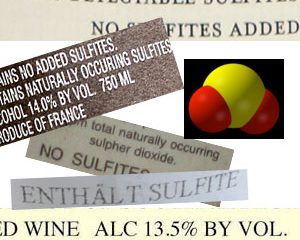Like so many wine terms in the absence of legal definitions, “natural wine” is slippery. Some people claim that the beast can’t exist at all winemaking always, necessarily represents human intervention. Others say that “natural wines” can be chemically adjusted and augmented so long as the additions are naturally occurring
There’s no better way to stir up a heated argument with serious wine lovers than introduce natural wine, organic wine, or sulfites into the discussion. Recent regulation changes in Europe and then a U.S. agreement on organic products, excluding wine, have stirred an on-going debate about organic wine, sulfites, and
Yesterday, the European Union published a press release saying it had reached agreement on rules governing organic wine, meaning that instead of just saying "made with organic grapes," wines made under these rules will now be able to bear the official appellation of "organic wine" on their labels. Starting with
Franciacorta has the most demanding standards for any sparkling wine region in the world. They're a substitute for tradition, because the Italian region has been in the bubbles business for only 50 years, which is nothing in Europe. As everybody is thinking about bubbly this week, I decided to take
The word "sulfur," in my mind, is inexorably linked back to Mr. Burcik's high school chemistry class, when we were given soft, pungent, yellow chunks to mix with other chemicals. When elemental sulfur is exposed to air, it forms sulfur-read more-
"I can't drink red wine: it gives me headaches." "I can't drink white wine: it gives me headaches." "I can't drink Champagne: it gives me headaches." You have probably heard this before. Some people just react badly to certain types-read more-
Wine consumers and trade alike remain very interested in the wine and sulfites discussion. There have been many online articles and blog posts in the past year dedicated to this issue. "Sulfites in wine" is often the number one search-read more-

